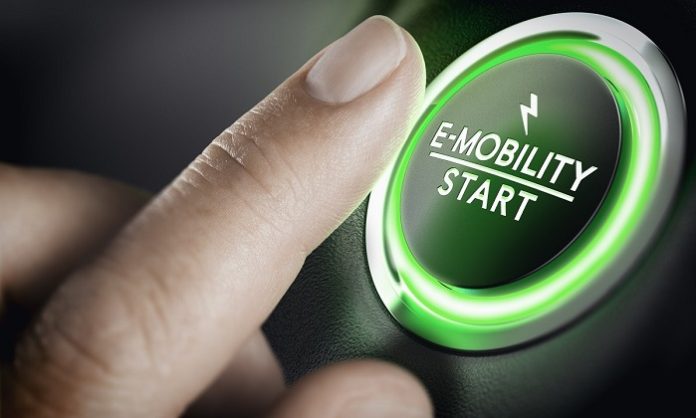The Union Budget has always been the host of all the announcements that go around the year by the government. FM Nirmala Sitharaman quoted that the Budget 2022-23 will lay the foundation for economic growth through public investment as Asia’s third-largest economy emerges from a pandemic-induced slump. Pandemic has been a tough roller coaster for the economy as well as for the growth still India manages to stand still amongst one of the major economies that withstand all the challenges without the breakout. The overall sharp rebound and recovery of the economy are reflective of our country’s strong resilience.
While the reactions have been spurring from all over the country like a wildfire, ELE Times Sub Editor and Technology Correspondent Sheeba Chauhan and Mayank Vashisht were able to narrow down the focus into the haystack of opinions to salvage what the e-Mobility experts have to say.
Excerpt:
Varun Goenka, CEO & Co-Founder, Chargeup

“One of the most pressing needs of the day is to establish a network of battery charging and swapping stations across India that can eliminate the range anxiety and encourage people to adopt EVs with greater confidence. The government’s announcement to encourage private sector players to develop sustainable and innovative business models in this arena, is a welcome move. Further, the support for interoperability would lead to battery standardization. The push towards public transit usage by establishing more EV exclusive zones wherein private or non-electric vehicles will be barred is something we had been anticipating. Holistically, the various measures announced are highly encouraging for the EV sector as well as the overall environmental sustainability, and this seems to be a budget that focuses on the right areas.”
Mohal Lalbhai, CEO and Founder, Matter

“The Union Budget 2022-23 has made a strong case for furthering clean energy, it encourages a sustainable future for India and has been drafted keeping in view of the climate change impact, as pointed out by our Honorable Prime Minister during the COP26 Summit held in Glasgow. The initiatives announced towards greater adoption of electric mobility by strengthening EV charging especially the introduction of policy for battery swapping infrastructure is encouraging. Energy being the key progress enabler, so the announcement on the energy storage system being given infrastructure status is important as it will fuel not just the electric mobility sector but will give a necessary boost to the economy as well. Another positive step by the ministry is the extension of the tax exemption for start-ups till March 2023. Summing it up, we strongly believe that the initiatives announced will boost a sustainable future for India and help the nation achieve its broader decarbonization goals with greater contributions coming from Start-ups.”
Anmol Bohre, Managing Director & Co-founder, Enigma

This government is bringing the change towards mass adoption of EVs. A move that is also helping nurture the start-up ecosystem in our country.
The Battery Swapping Policy introduced in the budget will go a long way in improving the affordability of EVs. This policy will lead to battery standardisation. This will also push towards mass adoption of EVs. The policy will also open new opportunities in this sector and support growth of new start-ups.
The special mobility zones with zero fossil fuel policy will help bring down the pollution level in our cities and give the people the option of breathing cleaner air, something that is the need of the hour.
These policies are a welcome step taken by the government. This industry and growing and we look forward to more support, especially in the area of retail finance, from them to help nurture and grow this industry.
Maxson Lewis, Managing Director & CEO, Magenta

The Union Budget 2022 did show its intent on promoting cleaner mobility. The fact that the Union Budget 2022, did not focus on the traditional Auto business does show the intent of the government to focus on new technologies with its zero fossil fuel policy.
The introduction of battery swapping policy and interoperability standards will go a long way in building the use cases. The fact that the government will also formulate interoperability standards to improve the efficiency of EV business is a good indication and will support the growth of the infrastructure.
What was missed was an explicit statement of the extension of the FAME scheme and how it can support the expansion of the charging network in India to help facilitate the switch from petrol and diesel-based vehicles to EVs.
The Finance Minister’s words that the private sector will be encouraged to develop sustainable and innovative business models for battery and energy as a service is a great boost to co-develop the Battery Swapping and EV charging ecosystem.
Girish Nagpal, CEO, MetroRide

The Union budget gives a huge boost to the EV sector with the clear announcement by the honourable Finance Minister Nirmala Sitharaman that there will be increased focus on expanding EV infrastructure across the nation. This will help vehicle owners to shift to electric cars without the lesser worry of connectivity.
Sitharaman also mentioned that Indian cities will see areas which may be “NO GO ZONES” for ICE vehicles & “special mobility zones: with zero fossil fuel policy.
“This I feel clearly shows the focus of our govt on the future of EV mobility which is a great positive signal for the entire industry and pushes our country towards a sustainable future.” Best thing is a plan “to formalise the interoperability standards for the battery swapping technology”. This will be a great move to make battery swapping more adoptable & practical.”
Kaaman Agarwal, CTO, MetroRide

“Great Initiative by the Hon Finance Minister, Nirmala Sithraman, to promote EV Battery Swapping. Standardization of EV batteries is the need of the hour, to promote the switch to EVs. Hoping to see some initiatives for the Ride-Hailing platforms, committed to electric vehicles.”
Raman Bhatia, Founder & Managing Director, Servotech Power Systems Limited

The key decisions made on the renewable energy front illustrated in the Union Budget 2022 precisely addresses the most critical challenges halting India’s speedy transition to a clean new era. The allocation of additional Rs 19,500 cr to the Production Linked Incentive (PLI) for the development of high-efficiency solar modules, thoughtful policies & action plans, supporting incentives for green bonds would not only accelerate our pace to achieve the 2030 target of 280 GW of installed solar capacity but would also help deliver on the 2070 net-zero emissions target commitment made by PM Narendra Modi at the COP26 summit held last year in Glasgow and play a pivotal role in tackling the global crisis of climate change.
Sheeba Chauhan & Mayank Vashisht | Sub Editor | ELE Times








